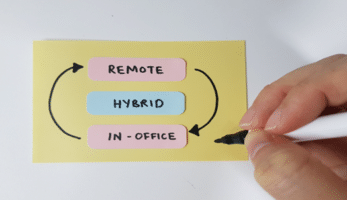Human Capital Management
5 Challenges That Can Cause Your HRIS Implementation to Crash and Burn

Both HR and IT leaders remain challenged to identify and invest in HRIS system(s) to align business needs while supporting organizational strategy. As the role of HR evolves, the demands of a business enabling HRIS systems are increasing. The shift from procedural HR administration to strategic level organizational engagement is essential to increasing productivity and providing business insight and intelligence. According to Info-Tech Research Group, 50-75% of enterprise resource planning projects (ERP) fail. The creation of a solid strategy will be a contributing factor to the success of the implementation, however, organizations must be mindful and prepared to face some of the following key challenges.
- Lack of senior leadership’s support. The number one overall critical success factor for an HRIS strategy is top management support. Leadership should be enabling the plan from start to finish and providing the level of priority necessary to ensure resources spend the time necessary to see the project to successful completion.
- Understanding the level of support required to sponsor the plan. Several options exist in how to best sustain your HRIS initiative, from a “do it yourself” framework to enlisting consulting expertise or a hybrid of the two. You need to ask yourself the following questions to determine what level of support is right for your organization:
- Has your team already made this project a priority?
- Does your team have the time, capacity and expertise available to support this initiative? Or do you need to bring in additional support?
- Do you have clearly defined and realistic project team roles and functions to bear a well-aligned and holistic HRIS strategy?
- Clear understanding of how HRIS goals align with the business. HR needs to position itself as a strategic partner before embarking on an HRIS initiative and selecting a software. Analysis between current and desired states, while considering objectives can balance mitigating certain pains while remaining focused on future goals.
- Lack of communication. It is often that HR and IT speak different languages. Early identification of stakeholders and their roles and responsibilities is key to avoiding missing tasks or poor cross-functional communication.
- Know what you want to measure. Develop a roadmap to achieve the desired state of HRIS with clearly defined KPIs and metrics. HRIS can provide visibility into these metrics and inform decisions for improvement.
An effective HRIS strategy must be progressive and involve building a stable core functionality before addressing advanced capabilities. A strong foundation and plan will provide a platform for strategic enablement and future-facing activities like planning and predictive analytics. Being prepared to work through potential roadblocks and challenges throughout the HRIS implementation is critical in achieving your desired outcome.
Is your organization considering implementing a new HRIS system in 2021? Fill out this form below to connect with our HR experts and develop a plan that works best for your organization:







